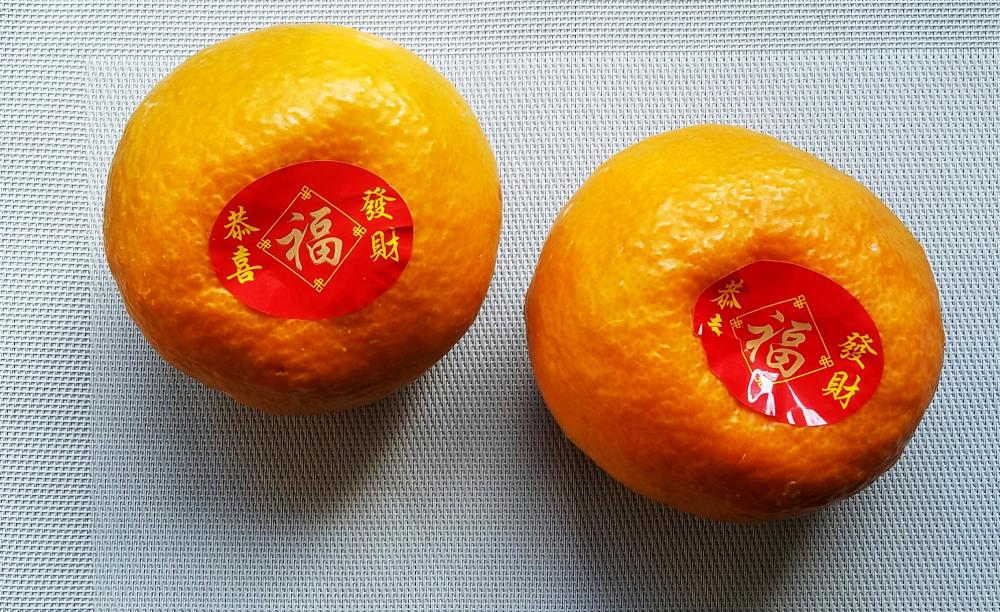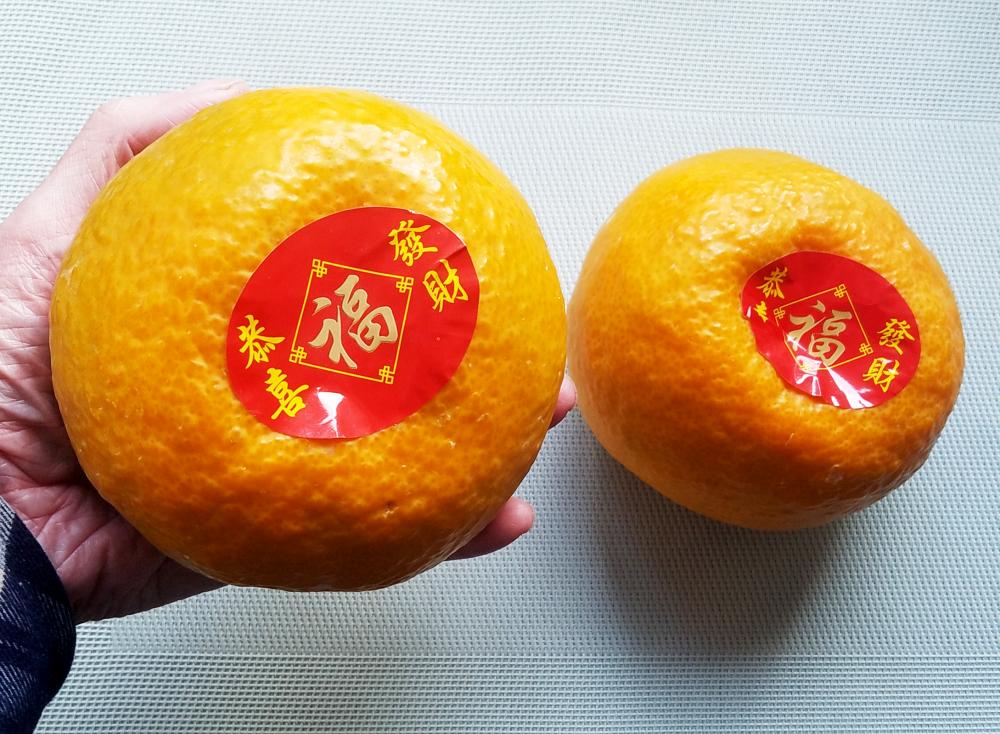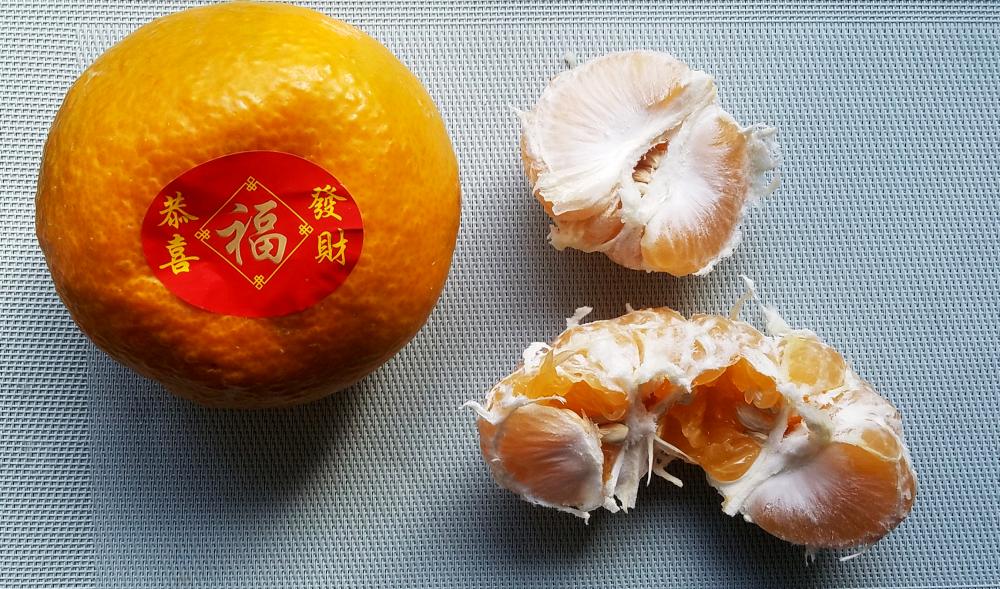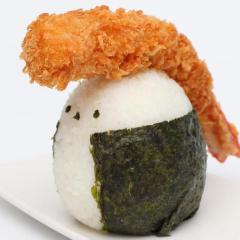It's New Year's Day - Year of the Ox. Perfect time for the market to be selling these.
They have two names in Chinese. 贡柑 (gòng gān), meaning "Tribute Tangerine". "Tribute" applied to food usually means that it was once reserved for the Emperor and his household. Commoners would be executed for eating them.
The second name is 发财柑 (fā cái gān), meaning "Get Rich Tangerine". 发财 (fā cái) is the Mandarin version of "fat choy" as featured in the Cantonese new year greeting, 恭喜发财 / 恭喜發財 (gong hei fat choy) which means "wishing you great happiness and riches". In Mandarin, this expression is rarely used and Chinese people here are baffled as to why foreigners address them in Cantonese, a language less than 5% speak! And the few who do live mainly in the south and Hong Kong. The most common greeting elsewhere is a simple 新年快乐 (xīn nián kuài lè), meaning "Happy New Year".
Now, you are probably thinking 'tangerines! those small orange-like fruits!' These are like no other tangerines. They are huge.
They are also incrediby juicy. I ate the one on the right and needed a shower! Biting into it is like I imagine it would be biting into a water-filled balloon. Next time, I'll just eat them in the shower.
The also contain a lot of seeds and are quite bitter - but not unpleasantly so.
I have attempted to find an English or Latin name, but failed. So far.







